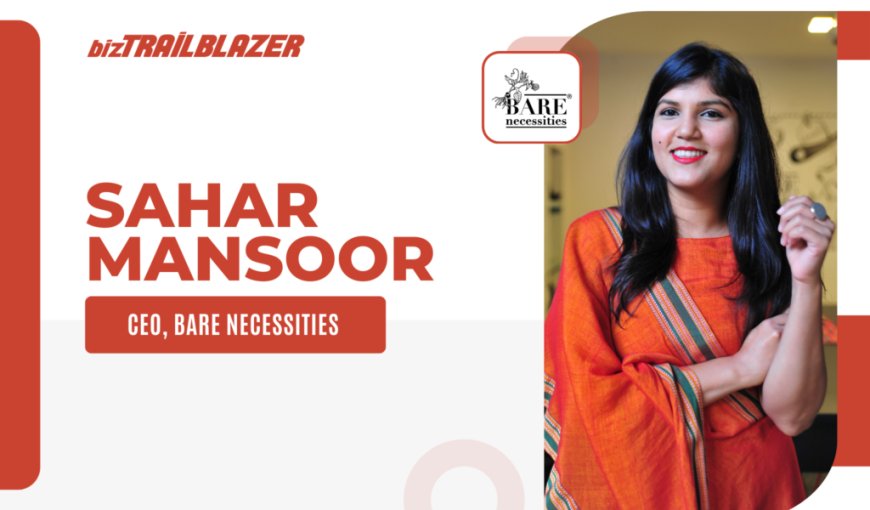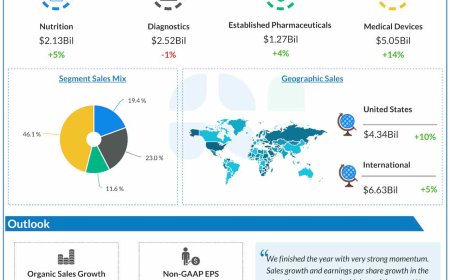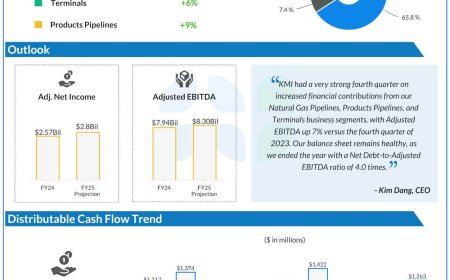Bare Necessities: Revolutionizing Zero-Waste Living in India with Sahar Mansoor
Every day, an alarming amount of trash makes its way into our rivers and oceans, posing a severe threat to the marine ecosystem and human health. Approximately 8 million pieces of plastic find their way to the sea daily. This means that about 11 million metric tons of plastics are dumped into the oceans yearly, which is expected to triple by 2040. This growing issue of garbage and waste disposal is what a young Indian entrepreneur, Sahar Mansoor, is solving. Sahar Mansoor is the founder and CEO of Bare Necessities (BN), a unique hub for zero-waste living in India. BN stands out as a personal and home care brand that not only offers zero-waste products, educational materials, and consulting services but also uses ethically, locally, and naturally sourced ingredients. Sahar has studied in India, Los Angeles, and Cambridge and volunteered on various humanitarian projects in Guatemala, Jamaica, and the Democratic Republic of Congo (DRC). An environmental policy graduate of Cambridge University, Sahar has also worked for the World Health Organization and assisted the SELCO Foundation in introducing decentralized renewable energy projects in rural Karnataka. Sahar’s work on zero-waste living and a sustainable lifestyle has not gone unnoticed. She has been recognized by prestigious organizations and media outlets such as the Global Green Economic Forum, Google India, Al Jazeera Stream, NDTV, Vogue India, Elle India, Verve, Femina, and India Today magazine. The inception of Bare Necessities Upon her return to India in 2015, Sahar was deeply affected by the country’s waste crisis. The sight of garbage piles on the streets and the plight of local waste pickers sorting through waste with their bare hands left a lasting impression on her. This experience ignited a passion in Sahar to address the environmental, health, and social justice issues associated with waste. Determined to stop contributing to the problem, Sahar knew she had to address her trash habits first. Her solution was to live a lifestyle that best reflected her values. “I had called myself an environmentalist for about six years at the time. I decided I needed to live a life fully congruent with my environmental and social justice values. I needed to walk the talk, and I knew I had to start living a zero-waste lifestyle,”- she recalls. In her zero-waste journey, Sahar realized that finding personal care and home care products free of harmful chemicals and plastic packaging was impossible. As an advocate for mindful consumption, she recognized the need to make sustainable choices more accessible to others and inspire a reduction in waste generation. This led her to create Bare Necessities in 2016, a brand mirroring the values of zero waste, ethical consumption, and sustainability. Products that Don’t Contribute to the Waste Problem Bare Necessities makes everyday products that don’t contribute to the waste problem. All of its products are natural, toxin-free, and packaged in reusable, recyclable, and biodegradable packaging. Relying on ethical sourcing from local farmers and vendors and emphasizing women’s employment, Bare Necessities addresses the often-ignored yet growing waste problem while providing ethical and innovative solutions that benefit consumers and society. In their quest to improve awareness regarding zero-waste living and sustainable lifestyles, Sahar and her team at Bare Necessities have designed Bare Necessities’ sustainability-themed online courses, talks, and workshops. These courses educate people about waste management, waste reduction, and ethical consumerism; they also help raise environmental awareness and empower customers with actionable knowledge. Currently, the organization offers three online courses – Zero Waste Living 101, Building Blocks of Sustainability, and Introduction to Circular Economy. Additionally, Bare Necessities’ courses are also recognized by UNESCO as a climate action resource and have over 70,000 enrolments. Measuring the Impact Bare Necessities is a Certified B Corporation and the first FMCG in India to achieve this prestigious certification. This certification goes much beyond just making sustainable products. It signifies a rigorous vetting process that evaluates the brand’s entire social and environmental impact. The organization is now a part of businesses committed to leading the movement to create a more inclusive, equitable, and regenerative economy, reinforcing its fundamental purpose as being a business for good. Bare Necessities is also fully committed to measuring its impact in alignment with the UN Sustainable Development Goals (SDGs) and follows the triple bottom line approach—people, planet, and profit. As of 2023, Bare Necessities has sold 179,547 products, saving 103,096,156 plastic units from going to landfills or harming the environment on land or water. This effort has diverted as much as 540,135.21 Kg of waste from landfills and the environment during its seven years of operations, from

Every day, an alarming amount of trash makes its way into our rivers and oceans, posing a severe threat to the marine ecosystem and human health. Approximately 8 million pieces of plastic find their way to the sea daily. This means that about 11 million metric tons of plastics are dumped into the oceans yearly, which is expected to triple by 2040. This growing issue of garbage and waste disposal is what a young Indian entrepreneur, Sahar Mansoor, is solving.
Sahar Mansoor is the founder and CEO of Bare Necessities (BN), a unique hub for zero-waste living in India. BN stands out as a personal and home care brand that not only offers zero-waste products, educational materials, and consulting services but also uses ethically, locally, and naturally sourced ingredients.
Sahar has studied in India, Los Angeles, and Cambridge and volunteered on various humanitarian projects in Guatemala, Jamaica, and the Democratic Republic of Congo (DRC). An environmental policy graduate of Cambridge University, Sahar has also worked for the World Health Organization and assisted the SELCO Foundation in introducing decentralized renewable energy projects in rural Karnataka.
Sahar’s work on zero-waste living and a sustainable lifestyle has not gone unnoticed. She has been recognized by prestigious organizations and media outlets such as the Global Green Economic Forum, Google India, Al Jazeera Stream, NDTV, Vogue India, Elle India, Verve, Femina, and India Today magazine.
The inception of Bare Necessities
Upon her return to India in 2015, Sahar was deeply affected by the country’s waste crisis. The sight of garbage piles on the streets and the plight of local waste pickers sorting through waste with their bare hands left a lasting impression on her. This experience ignited a passion in Sahar to address the environmental, health, and social justice issues associated with waste.
Determined to stop contributing to the problem, Sahar knew she had to address her trash habits first. Her solution was to live a lifestyle that best reflected her values.
“I had called myself an environmentalist for about six years at the time. I decided I needed to live a life fully congruent with my environmental and social justice values. I needed to walk the talk, and I knew I had to start living a zero-waste lifestyle,”- she recalls.
In her zero-waste journey, Sahar realized that finding personal care and home care products free of harmful chemicals and plastic packaging was impossible. As an advocate for mindful consumption, she recognized the need to make sustainable choices more accessible to others and inspire a reduction in waste generation. This led her to create Bare Necessities in 2016, a brand mirroring the values of zero waste, ethical consumption, and sustainability.
Products that Don’t Contribute to the Waste Problem
Bare Necessities makes everyday products that don’t contribute to the waste problem. All of its products are natural, toxin-free, and packaged in reusable, recyclable, and biodegradable packaging. Relying on ethical sourcing from local farmers and vendors and emphasizing women’s employment, Bare Necessities addresses the often-ignored yet growing waste problem while providing ethical and innovative solutions that benefit consumers and society.
In their quest to improve awareness regarding zero-waste living and sustainable lifestyles, Sahar and her team at Bare Necessities have designed Bare Necessities’ sustainability-themed online courses, talks, and workshops. These courses educate people about waste management, waste reduction, and ethical consumerism; they also help raise environmental awareness and empower customers with actionable knowledge. Currently, the organization offers three online courses – Zero Waste Living 101, Building Blocks of Sustainability, and Introduction to Circular Economy. Additionally, Bare Necessities’ courses are also recognized by UNESCO as a climate action resource and have over 70,000 enrolments.
Measuring the Impact
Bare Necessities is a Certified B Corporation and the first FMCG in India to achieve this prestigious certification. This certification goes much beyond just making sustainable products. It signifies a rigorous vetting process that evaluates the brand’s entire social and environmental impact. The organization is now a part of businesses committed to leading the movement to create a more inclusive, equitable, and regenerative economy, reinforcing its fundamental purpose as being a business for good.
Bare Necessities is also fully committed to measuring its impact in alignment with the UN Sustainable Development Goals (SDGs) and follows the triple bottom line approach—people, planet, and profit. As of 2023, Bare Necessities has sold 179,547 products, saving 103,096,156 plastic units from going to landfills or harming the environment on land or water. This effort has diverted as much as 540,135.21 Kg of waste from landfills and the environment during its seven years of operations, from July 2016 to March 2023.

Tackling Challenges
Over the years, newer companies have entered the market, and some of Bare Necessities’ competitors have started offering cheaper products, primarily because they do not have the necessary certification that Bare Necessities has implemented for its products. So, communicating the value of BN’s certified, high-quality, and genuinely earth-friendly materials to customers accustomed to purchasing cheaper alternatives is a significant challenge. Sadly, these lower-cost products often claim to be made from the same sustainable materials as Bare Necessities, but they do not meet the same rigorous standards.
Still, Bare Necessities is a company that maintains the essence and quality of its products to meet Sahar’s goal of sustained living and the no-waste policy. This commitment makes Bare Necessities unique and reinforces its dedication to making a positive environmental effect.
Engaging with Local Communities
Bare Necessities raises awareness about sustainability through its inclusive employment philosophy, transparent sourcing, and refill programs. Its UNESCO-recognized sustainability school has reached over 2.5 million people, empowering them with actionable knowledge.
Bare Necessities launched ‘The Last Straw’ project, supporting coconut vendors in transitioning to organic coconut leaf straws to tackle the issue of single-use plastic straws. This initiative not only addresses plastic pollution but also influences policy discussions by providing actionable recommendations to promote eco-friendly alternatives.
Additionally, Bare Necessities’ sustainable business practices helped the brand foster partnerships with the reforestation organization Maruvan and waste warrior empowerment group Hasiru Dala to demonstrate its commitment to making a positive impact.
Bare Necessities is not just a first mover in zero waste but a thought leader. The organization aims to develop a scalable model that minimizes environmental impact and shares its learnings with other entrepreneurs. It champions social and economic progress by creating stable green jobs, empowering underserved communities, and promoting financial inclusion.
Primary Obstacles in Advocating for Better Waste Management in India
Sahar feels many lack awareness about the importance of proper waste segregation at home and responsible disposal. This is further exacerbated by the lack of proper waste collection systems, sorting facilities, and recycling plants, which hinders effective waste management.
All of these affect an extremely vulnerable group, the informal waste pickers. This group sorts every kind of waste with their bare hands, posing a significant threat to their health and working conditions. So, integrating them into a formal system with proper training and support is extremely important. Although many organizations and NGOs are working towards these causes, implementing and enforcing regulations across different components to tackle the waste crisis is the need of the hour.
Future Roadmap
Looking ahead, Bare Necessities envisions itself as an interdisciplinary hub – an innovative space where product designers can collaborate to design products with a cradle-to-cradle philosophy. It’ll serve as a platform for policy analysts to work with local government on policy recommendations on effective waste management policies to reduce waste. Moreover, Bare Necessities aims to foster collaboration among behavior economists, ecologists, researchers, and consumers to advance towards a circular economy.
Bare Necessities also seeks to collaborate in new geographies and new industries, providing zero-waste consultancy services, leveraging technological products for synergy gains on products, and ultimately co-creating with its collaborators and the community.











































